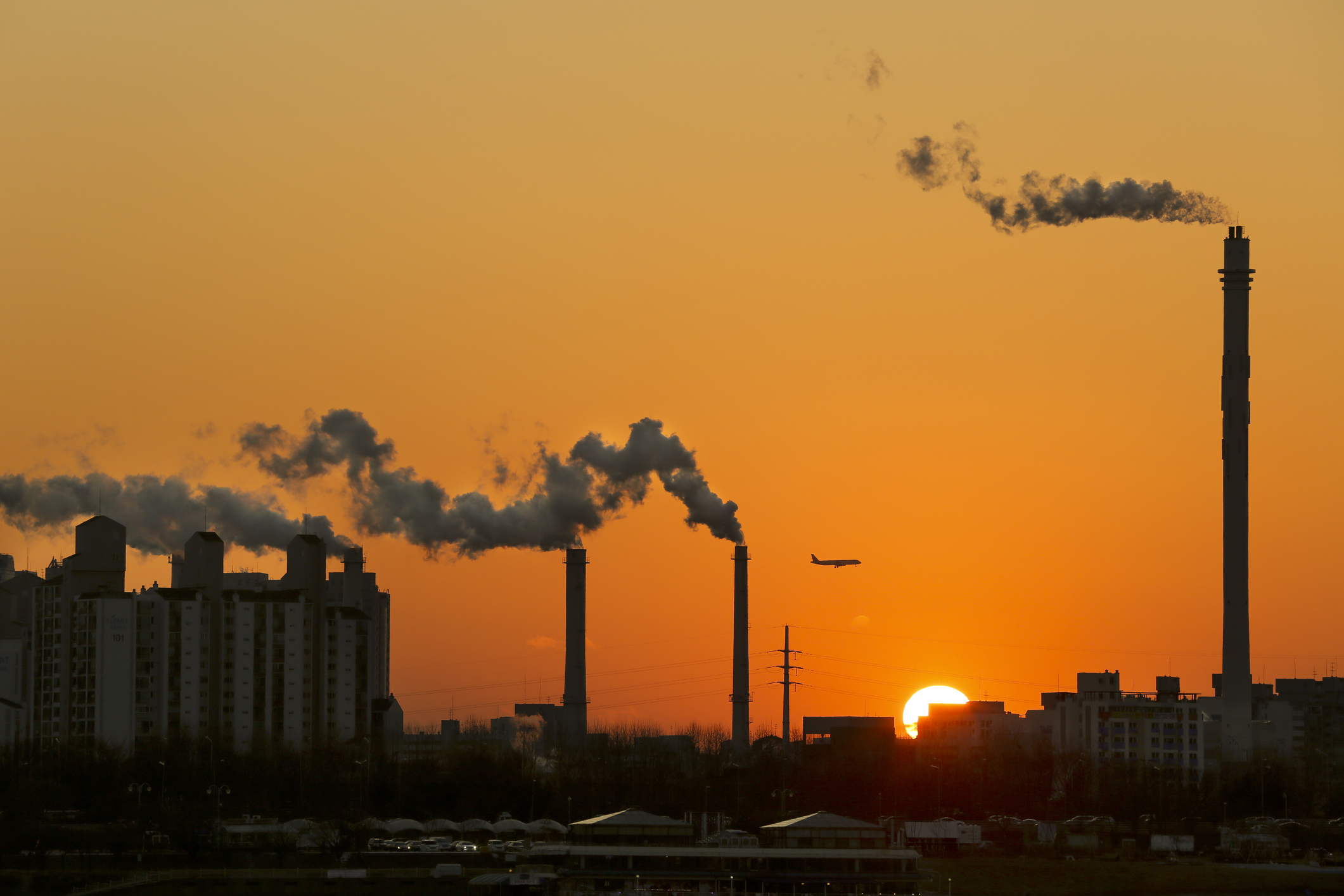
South Korea’s most-polluting companies have made 475 billion won ($357 million) from selling unused carbon emissions permits in the first eight years of the nation’s program, according to an activist group.
The 10 biggest emitters sold almost 22 million tons of excess credits from 2015 through 2022, according to Plan 1.5, a Seoul-based climate advocacy group. The nation’s cap-and-trade system, which covers almost 700 companies, had a surplus of 39.2 million tons in 2021 and 2022 combined, the group said in an analysis. That’s equivalent to about 6% of Korea’s total emissions in 2022.
Read More: Carbon Credits Should Be One of Our Best Tools to Fight Climate Change—If We Use Them Right
South Korea was one of the first nations in Asia to start an emissions-trading system, but it has fallen short of encouraging industrial polluters to reduce pollution because too many allocations were supplied, most of them for free. The analysis puts further pressure on the government to improve the program, which is a central pillar in the nation’s pledge to cut the release of greenhouse gases by 40% from 2018 levels by 2030.
“South Korea’s emissions trading scheme has failed to serve its main purpose, which is to make carbon-intensive companies pay for their pollution,” Kwon Kyungrak, a program director at Plan 1.5, said in an interview. “The total amount of allocations in 2030 should be reduced by about 30% from the current level, otherwise the scheme will continue to be a money-making tool for these companies.”
The government said in October that it plans to strengthen the setting of total emission allowances to increase the incentive for companies to cut pollution, after it holds consultations with stakeholders.
Posco, the country’s biggest emitter, was left with unused carbon permits in 2022 because a typhoon disrupted its steel production, leading to a reduction in emissions, the company said. Korea’s largest steelmaker earned 31.1 billion won that year from selling permits, but purchased 21.3 billion won worth of allowances in 2021, it said.
South Korean permits have fallen about 43% over the last year to 9,130 won a ton, a fraction of those in the European Union, the world’s largest cap-and-trade system. Carbon trading wasn’t an immediate success in the 27-nation bloc, with permits plunging more than 90% after the 2008 financial crisis hobbled industry and helped create a surplus.
More Must-Reads from TIME
- L.A. Fires Show Reality of 1.5°C of Warming
- Home Losses From L.A. Fires Hasten ‘An Uninsurable Future’
- The Women Refusing to Participate in Trump’s Economy
- Bad Bunny On Heartbreak and New Album
- How to Dress Warmly for Cold Weather
- We’re Lucky to Have Been Alive in the Age of David Lynch
- The Motivational Trick That Makes You Exercise Harder
- Column: No One Won The War in Gaza
Contact us at letters@time.com